At a glance
Natural disasters such as hurricanes, tornados, floods, and wildfires can be scary and stressful, especially if you are expecting or have a baby. Learn how to protect yourself and your baby before, during, and after a natural disaster.
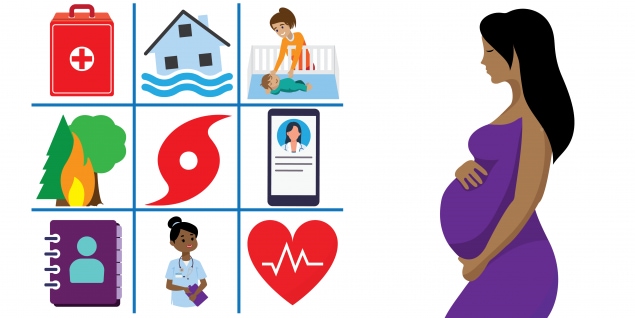
Preparing for a disaster
- If you are pregnant, talk to your health care provider about where you will get prenatal care or deliver your baby if your provider's office or hospital is closed.
- Learn the urgent maternal warning signs and symptoms. Seek medical care immediately if you experience any of these signs or symptoms. Talk to your health care provider about what to do in case of an emergency.
- Be informed—check with your local emergency management agency to find out how to get emergency alerts (such as text alerts).
- If you need to leave your home, know where to shelter. Search for open shelters near you by texting SHELTER and your ZIP code to 43362. Example: Shelter 01234.
- Make a family emergency action plan for how you and your family will contact one another and what steps you will take in different types of emergency situations.
Preparing an emergency kit
- Be prepared to leave quickly and have an emergency kit ready to go. The kit should include at least a 3-day supply of food and water for each person, health supplies including medications, baby care and safety supplies, and backup chargers for electronics like a cellphone or tablet. Try to store a 2-week supply of water if possible.
- Keep a copy of important family documents like medical records, insurance information, ID cards, copy of all prescription information and medical supplies in a waterproof, portable container.
- Have at least a 7- to 10-day supply of your prescription medications. Ask your health care provider if you can obtain a 30-day (or longer) emergency prescription refill. Learn more about emergency prescription laws in your state.
- If you use feminine hygiene products, such as menstrual pads or tampons, consider bringing a supply, as they might not be immediately available when you need them.
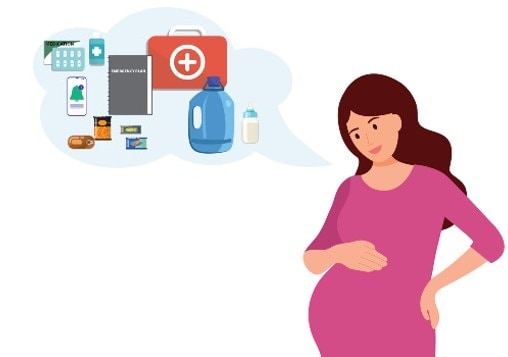
- Take care of your emotional health and practice healthy stress management. Stress can cause problems like having your baby come too soon or having a baby that is under weight. Engaging in physical activity, getting rest, and drinking plenty of clean water can help you reduce stress. Ask for help if you are feeling overwhelmed or stressed.
- Plan ahead to help your baby sleep safely if you need to leave your home. Your baby is safest sleeping on their back in their own sleep area (such as a portable crib or bassinet) that does not have pillows, blankets, or toys.
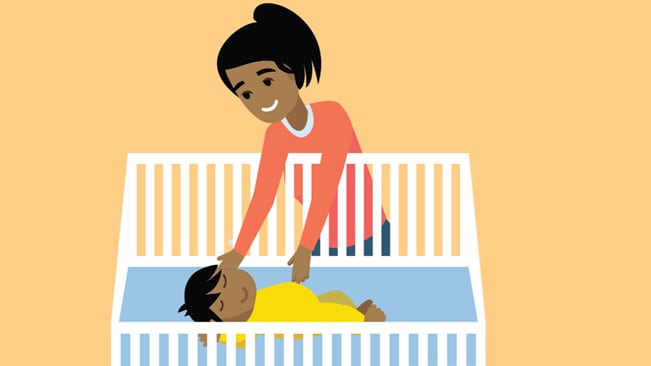
During and after a natural disaster: if you are pregnant
During and after a disaster, you may have strong emotions. Connecting with family, friends, and others in your community can help you cope with a natural disaster. Take care of yourself and each other. Know when and how to seek help.
- During a natural disaster, you may have to stay at a shelter or temporary housing. If you go to a shelter, tell the staff that you are pregnant so they can help you.
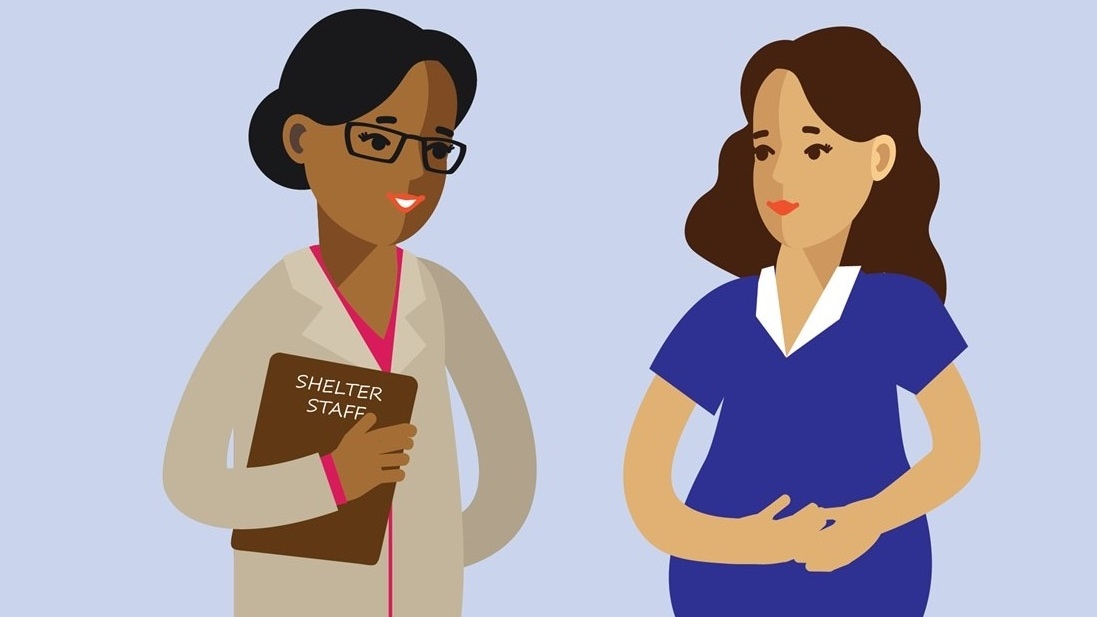
- Get medical care right away if you are having signs of labor. Call your doctor, 911, or go to the hospital immediately if it is safe to leave. If you are in a shelter, tell the staff as soon as possible about your symptoms.
- When it is safe to do so, make an appointment to continue your prenatal care, even if it is not with your usual doctor.
- Get your vaccines, like COVID-19, RSV, flu, and Tdap shots to protect you and your baby against COVID-19, RSV, seasonal influenza, and whooping cough. Vaccination helps protect you during pregnancy and protects your baby for several months after birth.
If you get sick
- If you do get sick, talk with a health care provider right away. Explain that you are pregnant or think you might be pregnant.
- Some infections might harm your developing baby. The sooner you get the care you need, the better.
- While you are sick, drink plenty of clean water, rest, and follow the health care provider's advice.
Taking medications
- Before you start taking any medicines, even ones that you can buy at the store, talk with a health care provider.
- Make sure to tell the doctor or nurse that you are pregnant or might be pregnant. Some medicines are not good to take during pregnancy, but others are okay.
- Continue taking your multivitamins with 400 micrograms of folic acid every day to help keep you and your developing baby healthy.
- If you are already taking another medicine, talk to your health care provider before stopping that medicine or taking a new medicine.
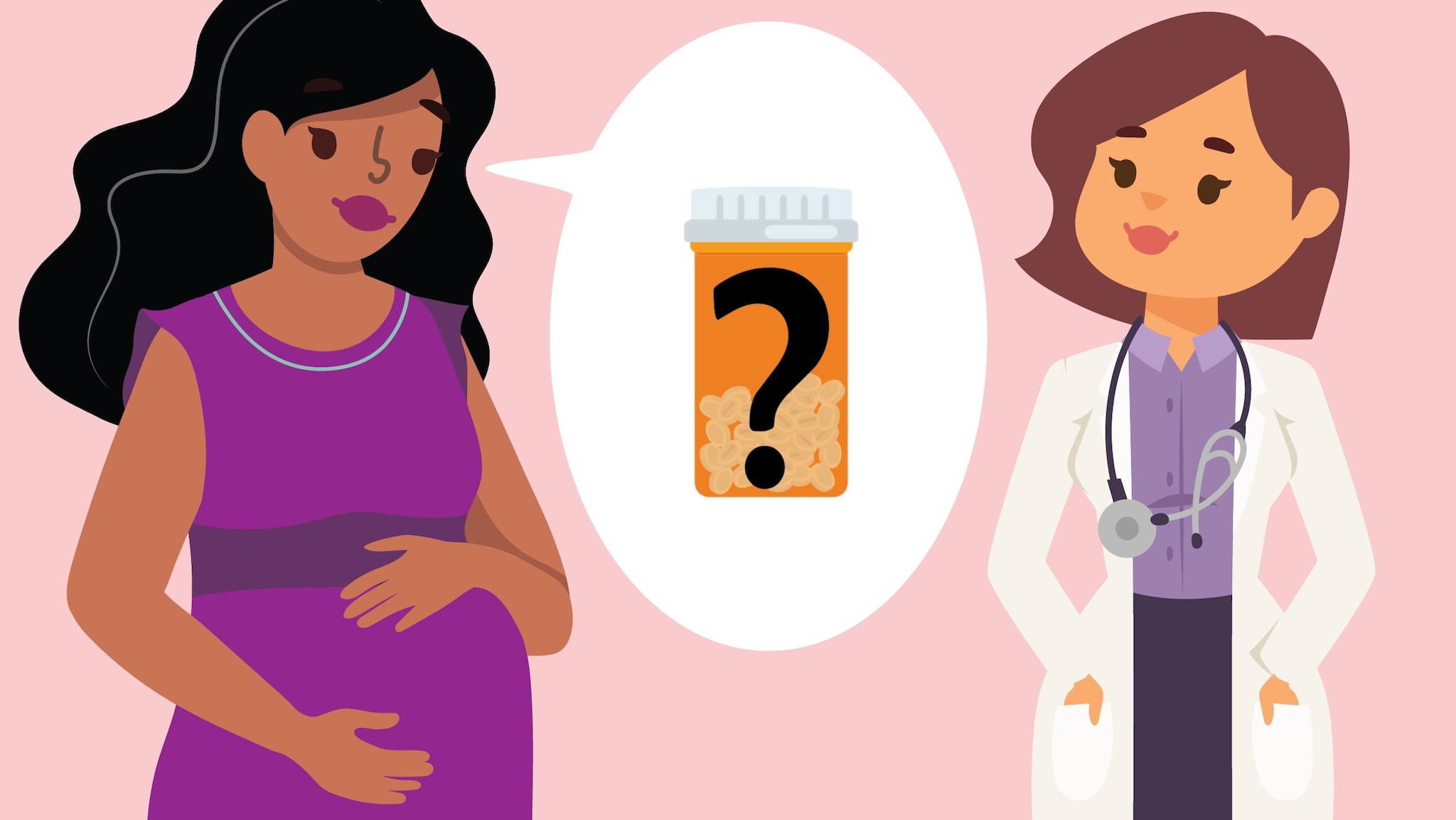
During extreme heat
- During extreme heat, wear loose, lightweight, light-colored clothing, stay hydrated, and try to keep cool to prevent your body from overheating.
- Stay in air-conditioned buildings as much as you can. If your home is not air-conditioned, reduce your risk for heat-related illness by spending time in public facilities that are air-conditioned, and using air conditioning in vehicles. Contact your local health department or find an air-conditioned shelter or cooling center in your area.
Preventing mosquito bites
Follow these steps to prevent mosquito bites to reduce your risk for illnesses spread by mosquitoes.
- Cover up by wearing long-sleeved shirts and long pants.
- Stay and sleep in places with air conditioning or that use window and door screens.
- Use Environmental Protection Agency (EPA)-registered insect repellents. These are safe and effective for pregnant and breastfeeding women when used as instructed.
- Once a week, empty and scrub, turn over, cover, or throw out items that hold water, such as trash containers, tires, buckets, toys, planters, flowerpots, birdbaths, or pools.
During and after a natural disaster: if you recently had a baby
- After giving birth and while breastfeeding, take special care of your body by drinking plenty of clean water and resting as often as you can.
- Get a postpartum checkup within 6 weeks after having your baby, even if it is not with your usual doctor.
- Stay up to date on your vaccines, like COVID-19 and flu shots to protect yourself against COVID-19 and influenza.
- See a health care provider for well-baby checkups and get recommended vaccinations for your baby, even if it is not with your baby's usual doctor.
- If you are not ready to get pregnant again, ask your doctor for several months' supply of the pill, patch, or ring, or consider using a method that last for several months like the shot. You can ask for a longer acting method like intrauterine devices (IUDs) and implants, which can last for 3 to 10 years depending on the device. Talk with a health care provider about what birth control method is right for you.
- Depression can occur during or after pregnancy. However, it is treatable, and most people get better with treatment. If you think you have depression, talk with your health care provider as soon as possible. Learn more about depression during and after pregnancy.
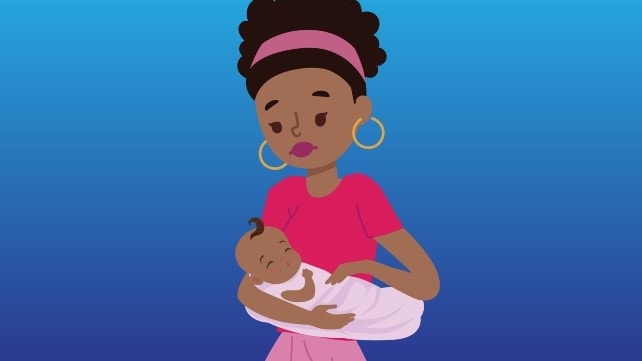
During and after a natural disaster: if you are breastfeeding or feeding a baby
- If you breastfeed, continue to do so if feasible. Breastfeeding is the safest infant feeding option in a natural disaster situation. Breastfeeding is the best source of nutrition for most infants. It can also reduce the risk for certain health conditions for both infants and parents.
- If you feed your baby with formula, use ready-to-feed formula if possible. Use bottled water to prepare powdered or concentrated formula. If bottled water is not available, boil water for 1 minute and let it cool before mixing with formula. Learn more on how to feed your young child safely during a disaster.
- Wash your hands before preparing formula and before feeding your baby or infant. If soap and water are not available for handwashing, you can use alcohol-based hand sanitizer for sanitizing your hands.
- Always clean infant feeding items with bottled, boiled, or treated water and soap before each use.
- If you cannot clean infant feeding supplies safely, children can lap up milk from a disposable cup, if available.
- Throw out bottle nipples or pacifiers that have been in contact with floodwater.
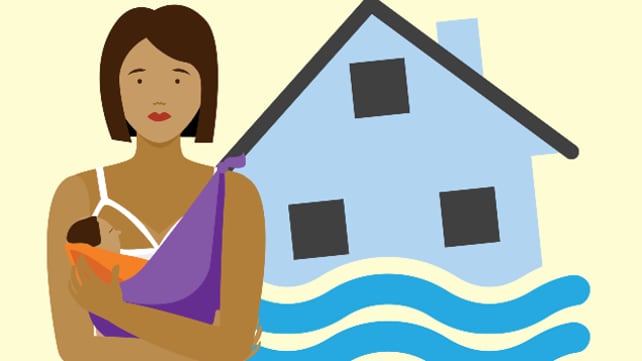
Post-disaster safety
- If you are pregnant or were recently pregnant, avoid hard physical work or disaster clean-up work.
- If your home has been affected by floods, it is possible that mold may be present. If you are pregnant or have a young infant, avoid entering a building with mold damage. Learn more about mold exposure after natural disasters.
- After stormy weather or severe flooding, avoid touching or walking in floodwater. If you do touch the water, make sure to use soap and clean water to wash the parts of your body that came in contact with the water. Do not swallow any of the floodwater and be careful to keep it away from your mouth.
- To prevent carbon monoxide poisoning, do not use generators, kerosene heaters, grills, or camp stoves indoors. Carbon monoxide is a gas with no color or smell. It is a poison to you, your baby, or anyone. If you breathe it, it can make you very sick. It can even kill you. Learn more about how to prevent carbon monoxide exposure.
- During and after disasters, harmful chemicals from businesses and other places may be released into the environment. Listen to announcements from emergency officials about chemical safety and actions you may need to take to protect yourself. If you have questions about exposure to harmful chemicals during pregnancy and breastfeeding, call MotherToBaby at 1-866-626-6847. To reach the nationwide poison control center, call 1-800-222-1222.
- After a wildfire, avoid breathing smoke or fumes from recently burned buildings or houses. If you have a baby, keep him or her away from areas where there is smoke or fumes, and stay indoors if possible. Learn more about how to prepare for and stay safe during or after a wildfire.
- If you feel sick in any way, talk to a health care provider right away. Remember to explain that you are pregnant, think you might be pregnant, or have been pregnant in the past year.
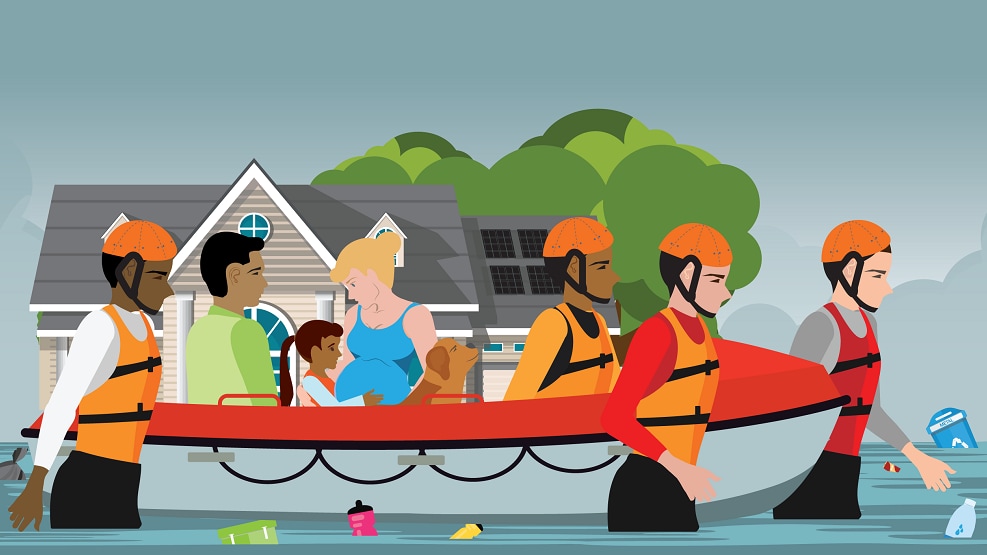
Additional preparedness and disaster resources
- Natural Disasters and Severe Weather
- Reproductive Health in Emergency Preparedness and Response
- Wildfire Smoke and Pregnancy
- Preparedness and Safety Messaging for Hurricanes, Flooding, and Similar Disasters
- Disaster Planning: Infant and Child Feeding
- Caring for Children in a Disaster
- Coping with a Disaster or Traumatic Event
- Radiation Emergencies and Pregnancy
- FEMA's National Emergency Family Registry and Locator System
